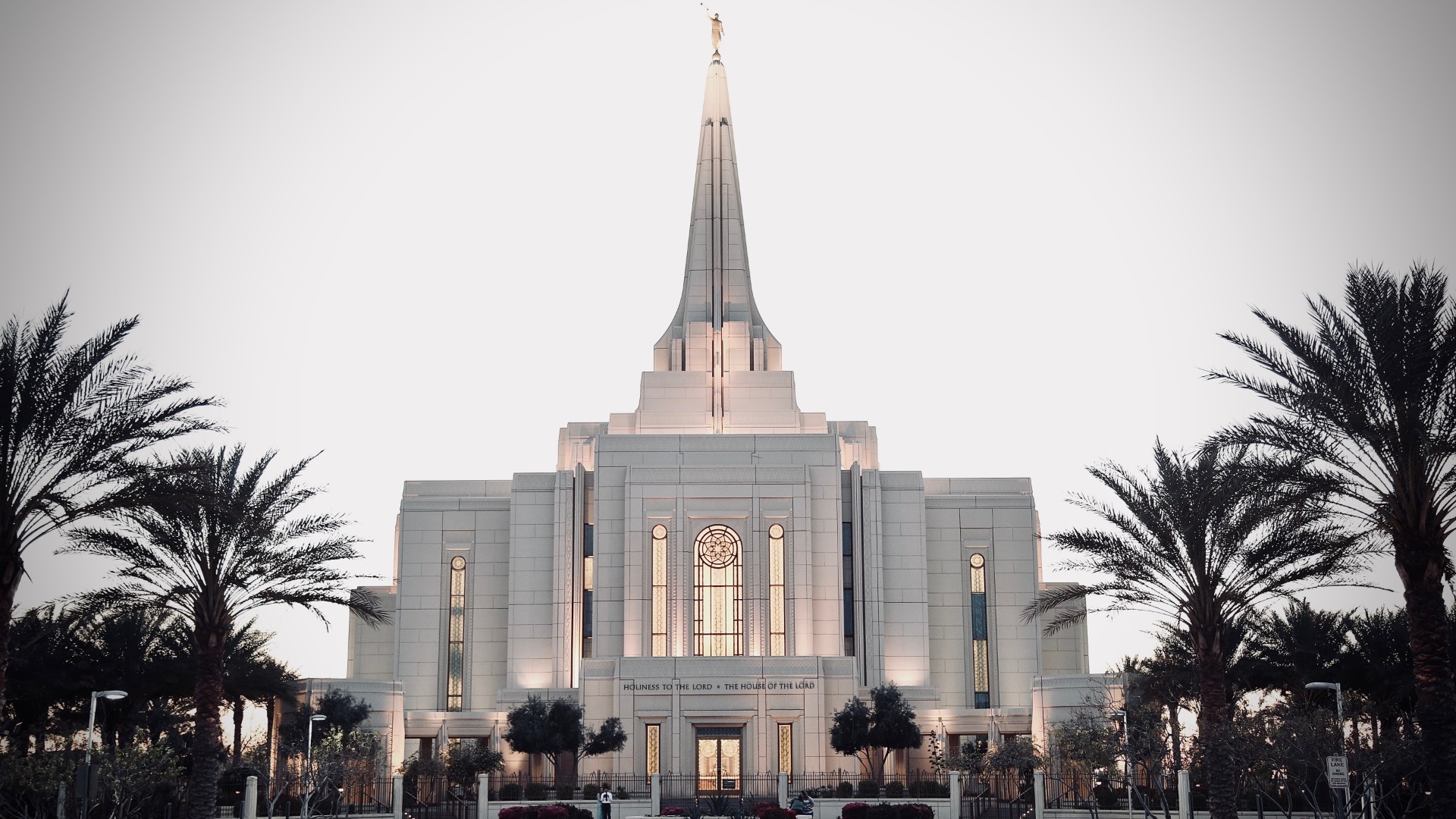I have just now learned something about Mormonism I never heard about before today: the second Endowment ceremony (or second anointing)—the “calling and election made sure.” It’s a temple ceremony offered only to married couples who have proved their worthiness over time and been personally invited by the prophet. The ceremony is not well known by members, and those who are invited to receive it are not allowed to tell others of their change in status, which I suppose explains why it isn’t much talked about.
I still need to do some more research into this, but here’s what it appears to be about: While the blessings of the covenant Mormons enter into through baptism and the first Endowment are conditional (that is, exaltation to the highest level of heaven and advancement to godhood depend on obedience to their commandments and ordinances), those who receive the ceremony of second anointing are sealed unconditionally to the highest blessings. The receipt of the blessings has been “made sure.” Here are some words from Bruce R. McConkie (who is now deceased, but formerly held the office of Apostle in the LDS Church) describing the concept:
[5] What is meant by having one's calling and election made sure?
To have one’s calling and election made sure is to be sealed up unto eternal life; it is to have the unconditional guarantee of exaltation in the highest heaven of the celestial world; it is to receive the assurance of godhood; it is, in effect, to have the day of judgment advanced, so that an inheritance of all the glory and honor of the Father's kingdom is assured prior to the day when the faithful actually enter into the divine presence to sit with Christ in his throne, even as he is “set down” with his “Father in his throne.” (Rev 3:21.) (Doctrinal New Testament Commentary, 3:325–353)
A man who went through the ceremony described his understanding of it this way:
With the second endowment, the conditions are removed as you have already proven your faithfulness and entitlement to the blessings. Therefore, you are sealed up to the highest degree of the celestial kingdom unconditionally. Any sins committed afterward may render you liable to the buffetings in the flesh, but they will not prevent you from attaining your exaltation. The only sin that is unpardonable is denying the Holy Ghost (or in some passages the shedding of innocent blood).
While our goal as Christians is not to “[b]ecome as God is, enjoying to the full every characteristic, perfection, and attribute which he possesses and which dwell in him independently,” as McConkie describes his expected blessings, I’m nevertheless excited to see that something exists in Mormonism similar to the security and rest we experience as God’s adopted children.
Here’s why I’m so happy to find this: Communicating Christian theology to Mormons is very difficult. We use many of the same words but ascribe different meanings to those words. The result is that one is never quite sure if the gulf of understanding has been crossed. One minute they seem to agree, and in the next, they’re saying the opposite.
But here is a point of contact! A concept in Mormonism of certainty about receiving all eternal blessings! What do they think of this idea? Do they long for it? How would they feel if they received it? I can’t wait to ask them this! For this is what we Christians have already, and we didn’t achieve it through our works, as Paul explains in Ephesians 1-2:
In [Christ], you also, after listening to the message of truth, the gospel of your salvation—having also believed, you were sealed in Him with the Holy Spirit of promise, who is given as a pledge of our inheritance, with a view to the redemption of God’s own possession, to the praise of His glory.
Having believed, we were sealed in Him. God “has seated us with Him in the heavenly places in Christ Jesus” (2:6) and “has blessed us with every spiritual blessing in the heavenly places in Christ” (1:3)—both statements are past tense. Christ has permanently obtained all blessings for us, and as God’s adopted children (1:4–5), we are certain heirs of them.
And now I know the concept is out there, in their own religion, for Mormons to ponder and be captivated by—a glorious, but distant, guarantee of secured blessings, out of reach for most. Now we can tell them the good news that Christ has already reached it for us.

